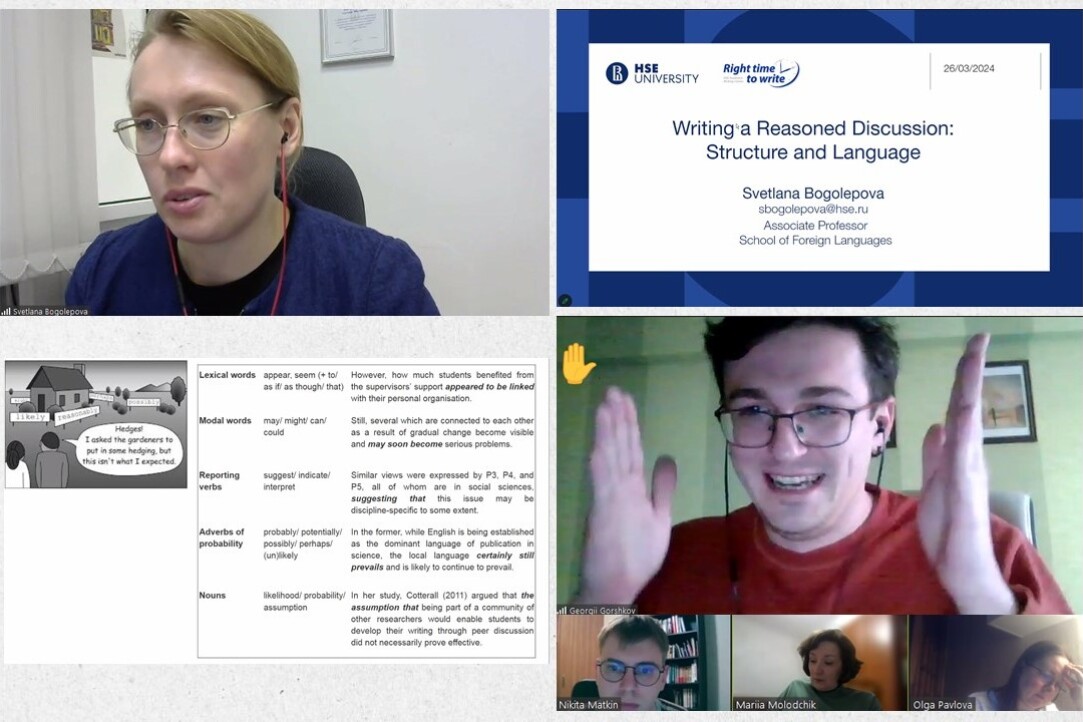The “D” in IMDaD: Building a strong Discussion
Which section of a research article is the most challenging to write? Many authors would argue that it’s Discussion. How to give an effective and concise overview of your research and set it in a wider context?

What linguistic means are common in this part of an article? These and many other questions were under scrutiny at the AWC recent workshop "Writing a reasoned Discussion: Structure and language."
The online session was led by Svetlana Bogolepova, Associate Professor at HSE School of Foreign Languages and the author of more than 40 research articles and textbooks. Svetlana outlined the structure of the Discussion section and invited participants to tackle a series of practical activities focusing on this section’s linguistic and stylistic features. The participants tried their hand at spotting typical language to express certain functions prominent in a Discussion, using hedging techniques to soften a claim, and recognizing elements of an argument. The group also discussed reader engagement markers, their use across disciplines, as well as current trends in academic discourse.
This is what the participants appreciated about the workshop:
- “A highly interactive workshop with clear navigation between the presentation and the materials and an informative discussion with examples. I was impressed to learn about the evolution of academic English.”
- “A very detailed and step-by-step approach to the theme. It was easy to follow and comfortable to complete the tasks.”
- “The topic was very interesting and important for novice researchers. The workshop was interactive, everyone was engaged. The content was very relevant and easy to understand, with genuine examples.”
Many thanks to Svetlana for a comprehensive and insightful presentation and opportunities to interact. Would you like to know more about the author’s voice in an academic text? Join our next online workshop on April 24!
Svetlana Bogolepova
Associate Professor, School of Foreign Languages
